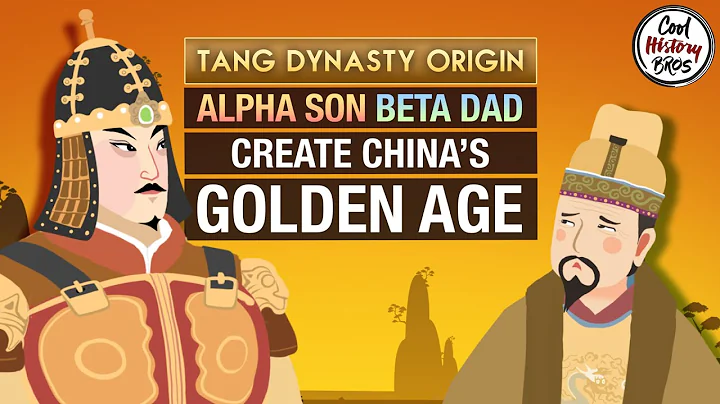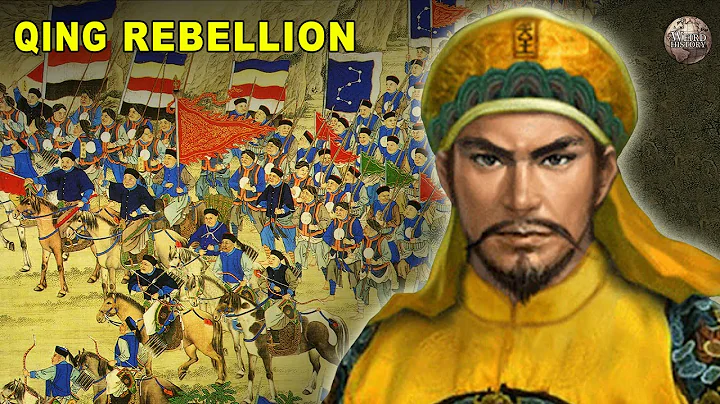Mentioning the Eastern Jin Dynasty which had a relatively low presence in the history of our country, I believe that most people have the impression that it was isolated, poor and weak. It is true that because the country was controlled by powerful noble families, the administrative efficiency of the Eastern Jin Dynasty was quite low. During the nearly one hundred years of ruling the south, there were few moments of forge ahead and vigorous development. However, it is not that the Eastern Jin Dynasty did not try to carry out reforms and launch the Northern Expedition. The person who brought this vitality to the Eastern Jin Dynasty, which was originally a backwater, was the now controversial Huanwen .

In the sixth year of Yongjia in the Western Jin Dynasty (312 AD), Huan Wen was born in Longkang County, Qiao State, which is now the Longkang Town area of Huaiyuan County, Anhui Province. According to the "Book of Jin" records, Huan Wen was the tenth generation grandson of Huan Rong, a great Confucian in the early Eastern Han Dynasty. His father, Huan Yi, was the official to the prefect of Xuancheng, ranking among the "Badas in Jiangzuo" one. Not long after he was born, Huan Wen was hailed as a "heroic thing" by the famous minister Wen Qiao because of his loud crying. This is why Huan Wen got his name "Wen".
In the third year of Xianhe (328), the rebellions of Su Jun and Zuyue broke out. Jiankang, the capital of the Eastern Jin Dynasty, was captured, and Huan Yi was killed in the turmoil. At that time, Huan Wen, who was only fifteen or sixteen years old, was deeply grieved and vowed to avenge his father. Three years later, Jiang Bo, who had participated in the murder of Huan Yi, died. After learning about it, Huan Wen pretended to be a guest who came to express his condolences, and killed his two sons in front of Jiang Bo's soul, which made him famous. According to historical records, when he grew up, Huan Wen was "very handsome and handsome", so he was selected as the prince consort of the eldest princess of Nankang.

In the first year of Xiankang (335), Huan Wen served as the internal history of Langya . He accumulated experience in political and military management on the northern border of the Eastern Jin Dynasty, and he also truly felt the strong external pressure faced by the Eastern Jin Dynasty. In the first year of Jianyuan (343), Anxi general Yu Yi was appointed as the general governor of the expedition and sent troops to launch the Northern Expedition. Huan Wen, as the forward commander, was ordered to lead his troops to Linhuai to garrison and support. Unfortunately, just when Huan Wen and Yu Yi "liked each other" and were ready to show off their talents, Yu Yi suddenly died of illness the next year.
After Yu Yi's death, Huan Wen succeeded him and was appointed as General Anxi, Jingzhou governor, and military commander of the six states of Jing, Si, Yong, etc., nominally controlling the military power in the middle and upper reaches of the Yangtze River. However, at that time, the land of Bashu was occupied by the Han Dynasty regime. In order to truly control the entire middle and upper reaches of the Yangtze River, Huan Wen decided to conquer Shu. In November of the second year of Yonghe (346), Huan Wen wrote a letter requesting a crusade against the Cheng Han Dynasty. Without waiting for a reply from the court, he directly led 10,000 elite troops and set off.

At that time, most civil and military officials in the Manchu Dynasty believed that Huan Wen did not have enough troops and would be defeated. However, Huan Wen was so unstoppable that he actually invaded Chengdu and destroyed Cheng Han. Relying on his achievements in pacifying Shu, Huan Wen was awarded the title of General of the Expedition to the West, Kaifu Yitong Third Division, and Linhe County Duke, and his reputation was unparalleled for a while. However, at the same time, he was also feared by various forces. The noble families headed by the Wang and Xie families were very worried that if Huan Wen's power continued to expand, they would one day be threatened.
In fact, the fear of the nobles is not unreasonable, because Huan Wen has indeed become the king of a country within his jurisdiction. He recruited soldiers and allocated supplies on his own. He did not even pay taxes to the court or obey the court's recruitment. He only nominally respected the Eastern Jin Dynasty. In this regard, history books commented: "Although there are traces of monarchs and ministers, they are just bound to each other. The talents of the eight states are transferred, and they are almost not used for the country."

In the fifth year of Yonghe (349), Hou Zhao Emperor Shi Hu died of illness and the north fell into chaos. Seeing that the opportunity was rare, Huan Wen wrote a letter requesting the Northern Expedition, but failed to receive a reply. On the other side, Sima Yu, the King of Kuaiji who was the prime minister of the government, re-appointed Yangzhou Governor Yin Hao in order to suppress Huan Wen and supported his Northern Expedition in the name of the imperial court. Upon seeing this, Huan Wen knew that the court wanted to suppress him by supporting Yin Hao, so in December of the seventh year of Yonghe (351), he directly led an army of 50,000 down the Yangtze River and marched to Wuchang.
Obviously, the destination of Huan Wen's march was not the north, but Jiankang, the capital of the Eastern Jin Dynasty.Facing Huan Wen's threat, the cowardly Yin Hao directly planned to abandon his official position to protect himself, while Sima Yu hurriedly wrote a letter to Huan Wen to persuade him, and worshiped Huan Wen as Taiwei in the name of the imperial court. Although Huan Wen refused the appointment, he still chose to withdraw his troops. After Huan Wen withdrew, Yin Hao led his army in the Northern Expedition, but suffered successive defeats and consumed a large amount of food, grass and weapons.

In the tenth year of Yonghe (354), Huan Wen wrote a letter to impeach Yin Hao. The court was already dissatisfied with Yin Hao, so he agreed to depose him as a commoner. From then on, no one inside or outside the court could shake Huan Wen's position. Even the history books lamented: "The power inside and outside returned to Wen." Without the constraints from the court, Huan Wen could finally feel at ease in the Northern Expedition. He led the Jin army After entering Guanzhong, almost all the local survivors came to greet them with their cattle and wine, and said excitedly: "I don't want to see the army again today!"
Unfortunately, due to insufficient food and grass, Huan Wen was not able to Guanzhong gained a foothold and was pursued by the former Qin army when they withdrew. Two years later, Huan Wen launched his second Northern Expedition and once regained Luoyang and paid homage to the tombs of the previous emperors of the Jin Dynasty . However, after he withdrew his troops, many of the places he had previously recovered immediately fell again. After that, Huan Wen went north several times, but either he could not sustain his supplies, or he failed to achieve anything because of the negative attitude of the court towards recovering the lost territory.
Regarding Huan Wen's Northern Expedition, the "Book of Jin" analyzes it very clearly, that is, he wanted to accumulate prestige through military exploits, and then overthrow the Eastern Jin Dynasty and replace it in one fell swoop. However, due to the interference of various factors, Huan Wen failed to truly achieve a major victory in the Northern Expedition. Therefore, in the sixth year of Taihe (371), he simply led troops into the court to depose Sima Yi and installed Sima Yu, the king of Kuaiji with whom he had a good "friendship", as emperor.

In the next two years, Huan Wen continued to try to seize power completely, but the noble officials headed by Wang Biaozhi of the Wang family, Wang Tanzhi of the Wang family, and Xie An of the Xie family tried their best to block him, and in the end he was not allowed to succeed. In the first year of Ningkang (373), Huan Wen died of a serious illness at the age of sixty-two. In order to express condolences, the imperial court posthumously awarded him the title of prime minister, gave him the posthumous title "Xuanwu", and buried him in the old way of Western Han powerful ministers Huo Guang .
To sum up, for the Eastern Jin Dynasty, Huan Wen was undoubtedly a rebellious official and traitor. After all, he led troops into the court and was good at building up and abolishing institutions. However, for the entire Eastern Jin Dynasty, Huan Wen's appearance gave the country that was originally self-contained a rare vitality. To put it another way, instead of allowing the Eastern Jin Dynasty to continue to be a tool for the ruling gentry and squeezing the people at the bottom, perhaps Huan Wen, who had reformed the government internally, restrained mergers, appeased the people, promoted talents, and actively regained lost territory externally when he came to power, would have Lead the entire country to a brighter path.





















